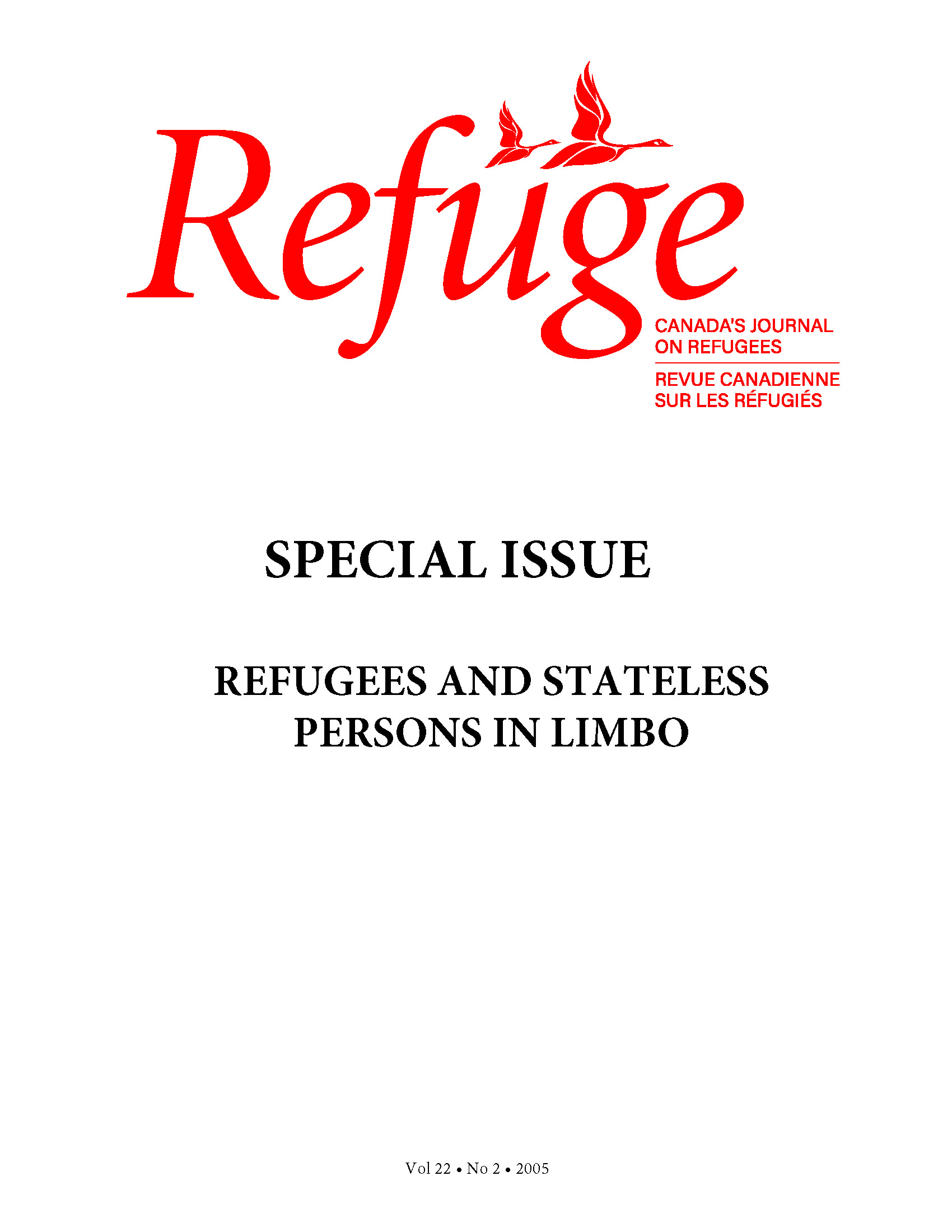Palestinian Refugees of Egypt: What Exit Options Are Left for Them?
DOI:
https://doi.org/10.25071/1920-7336.21329Keywords:
Egypt, Palestinian refugees, displaced Palestinians, legal status, statelessness, limbo, human rights, livelihoodsAbstract
This paper, based on personal interviews, analysis of Egyptian administrative regulations, and observation of practice of international and regional agreements on refugees, considers the effects of displacement on the Palestinians’ legal status and hence on the way they have conducted their livelihoods in Egypt. While Arab countries have offered to provide temporary protection to Palestinian refugees, as a result of political developments, including relations between the PLO and the host states, the rights afforded to Palestinians in Arab host states have varied greatly over time. Palestinians in Egypt, since 1978, do not receive assistance from the government of Egypt and do not have access to any of its public services. Palestinians also do not receive any assistance or protection from UN bodies in charge of refugee issues. Both regional and international pledges and agreements have not been respected. The ambiguous legal status of Palestinians has affected their livelihoods inmany ways. It has rendered their residence insecure and in many cases illegal. This has affected employment and education opportunities, as well as freedom of movement and association. The deprivation of rights and the unstable legal and economic conditions of Palestinians in Egypt has placed them in a state of “limbo.”
Metrics
Downloads
Published
How to Cite
Issue
Section
License
Copyright (c) 2005 Oroub El-Abed

This work is licensed under a Creative Commons Attribution-NonCommercial 4.0 International License.
Refuge authors retain the copyright over their work, and license it to the general public under the Creative Commons Attribution-Non Commercial License International (CC BY-NC 4.0). This license allows for non-commercial use, reproduction and adaption of the material in any medium or format, with proper attribution. For general information on Creative Commons licences, visit the Creative Commons site. For the CC BY-NC 4.0 license, review the human readable summary.







